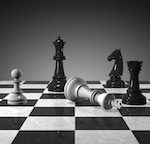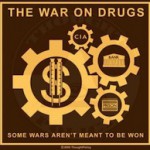This past week the Supreme Court of the United States (SCOTUS) issued a ruling in Riley v. California that dares to uphold the remains of a much abused 4th Amendment. The court ruled that the police may not search the cellphone of someone placed under arrest (often for offenses as trivial as “disobeying a lawful order” or “disorderly conduct”) without first having obtained a search warrant. In the digital age the principal of good design “form follows function” no longer is guaranteed. Digital function is not deducible from physical form; the sublime masks astounding capabilities. The contention was that since traditional wallets can be searched it must follow that anything approximately the same size as a wallet can be searched. A cellphone and a wallet may be comparable in size but that is where the similarities end. The rules that allow the police to search a defendant after an arrest dictate a limited spatial area (typically directly under the suspect’s direct control e.g. a car). So at first blush it might seem that if a cellphone is within that area it is fair game. But that analysis ignores the ways in which technology can redefine notions of spatiality. Cellphones (or the “smart” ones anyway) are not mere digital copies of the old-fashion wallet. They are but a keyhole onto a warehouse of information. Packed into these devices is the equivalent of what formerly would have been contained in ones home years ago; in essence they do indeed house ones “papers, and effects” which the 4th Amendment specifically protects from warrantless searches. Chief Justice John Roberts summarized this idea in his ruling:
“With all they contain and all they may reveal, they hold for many Americans ‘the privacies of life.’ The fact that technology now allows an individual to carry such information in his hand does not make the information any less worthy of the protection for which the Founders fought. …Our answer to the question of what police must do before searching a cellphone seized incident to an arrest is accordingly simple—get a warrant.”
However, as heartening as this decision might be, there still remains today an egregious violation of basic 4th Amendment rights that has time and again been upheld but the SCOTUS: border searches. In the court’s opinion (United States v. Ramsey (1977)) searches made at the border are de facto reasonable because they occur at the border and thus is any conflict with the 4th Amendment extinguished with a mere definitional twist. Border searches do not require suspicion nor a warrant; anything and everything may be legally searched and confiscated for no other reason than that one is crossing an imaginary line.
Even if one is inclined to believe that such border searches are necessary to keep out criminals and “illegals,” what may surprise you to learn is that the “border” is defined as 100 miles inland from the actual border (aka a “Constitution Free Zone” that encompasses two-thirds of the US population). What that means is that anyone, anywhere within 100 miles of a US border may be legally detained and searched for no reason at all by the DHS or ICE goon squads. They may seize electronic devices (phones, laptops), copy them wholesale, return them, and then rummage through one’s personal information at their leisure. That this does not currently happen routinely is small comfort; there is not a single barrier to the legality of such behavior. If you are within 100 miles of the border you are fair game. You may think you have nothing to hide, but do you really want total strangers looking at your photos and reading your emails? Secondarily, there is nothing objective about the 100-mile value – it could be changed to whatever arbitrary value our wise overlords deem necessary to maintain, “order at the border.” We are just one crisis away from a 250 or 500 mile border zone.
So while we may applaud the SCOTUS for their recent affirmation of 4th amendment protections, let us not forget to jeer them when they continue to permit those same protections to vanish at the border.




